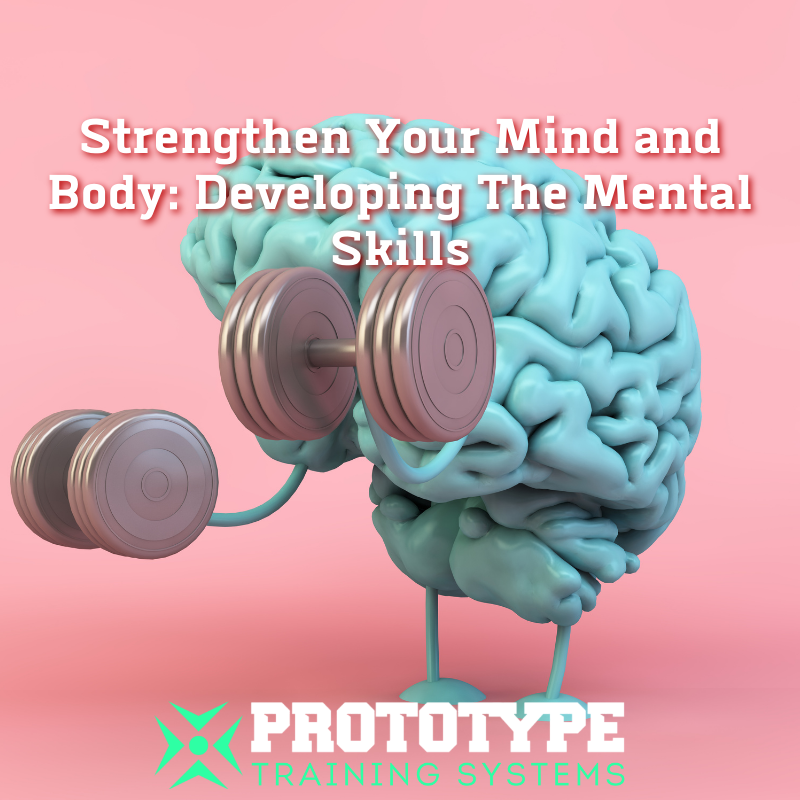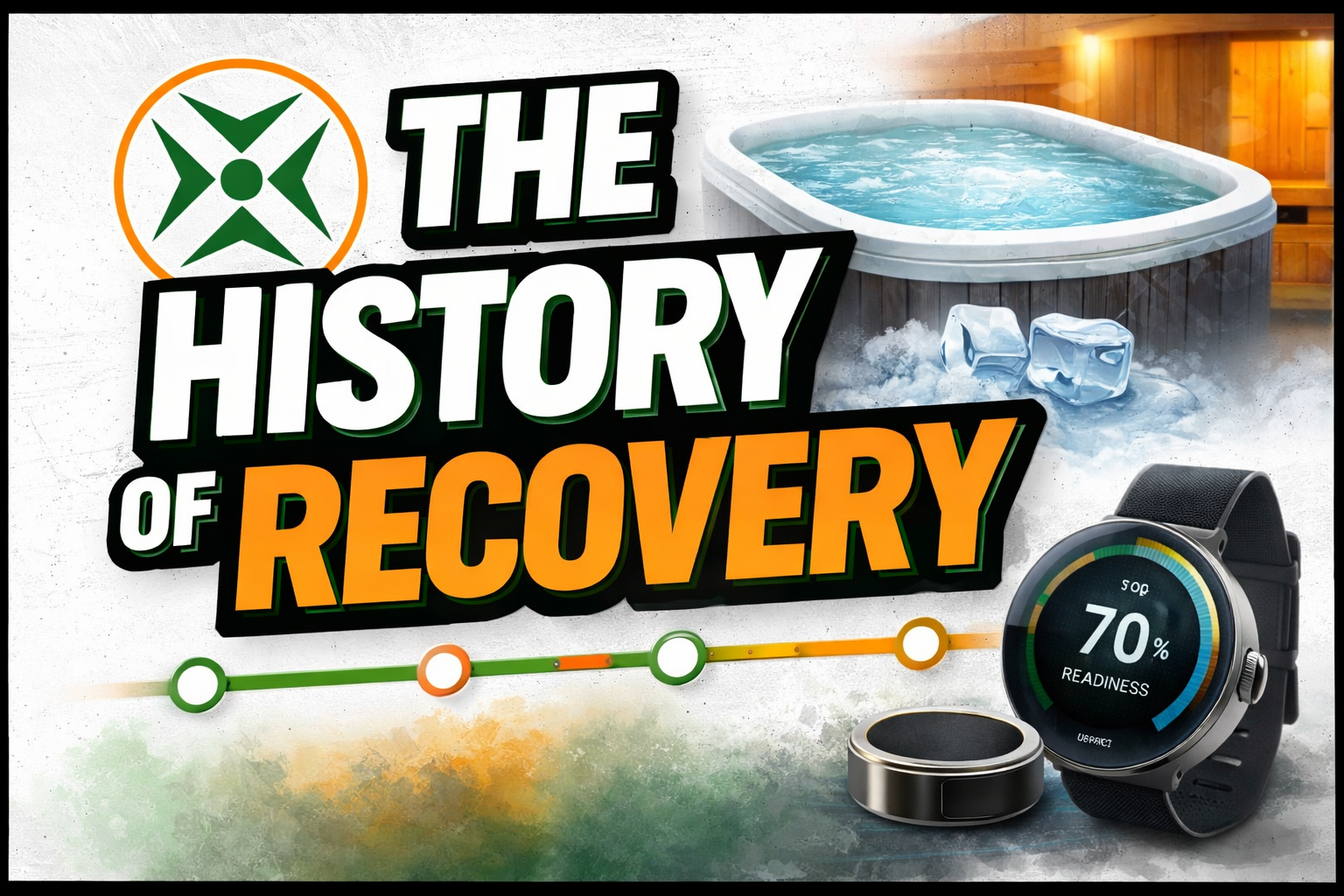Strengthen Your Mind and Body: Developing The Mental Skills

At Prototype Training Systems, we understand the importance of a holistic approach to fitness. While our Westborough, MA facility focuses on training the Ten general physical skills through CrossFit , personal training, and small group training, we also believe in the significance of mental development. Our team of experienced coaches and trainers is here to guide you in discovering the overlap between physical and mental training, helping you develop both aspects simultaneously.
If you are unfamiliar, CrossFit defines ten general physical skills that it aims to improve through its training methodology. These skills are a broad spectrum of athletic capabilities that contribute to overall fitness. They are:
- Cardiovascular/respiratory endurance: The ability of the body’s systems to gather, process, and deliver oxygen during sustained physical activity.
- Stamina: The ability of the body to store, process, and utilize energy for extended periods of physical activity.
- Strength: The ability of a muscular unit or group of muscles to apply force.
- Flexibility: The capacity to maximize the range of motion at a given joint.
- Power: The ability to apply a maximum amount of force in a minimum amount of time.
- Speed: The ability to minimize the time taken to complete a specific movement or task.
- Coordination: The ability to combine several distinct movement patterns into a single, fluid movement.
- Agility: The ability to quickly change direction, speed, or body position with control and accuracy.
- Balance: The ability to maintain equilibrium and control the body’s position when stationary or moving.
- Accuracy: The ability to control movement in a given direction or at a specific intensity.
Our training programs incorporate a variety of functional movements to help athletes develop these skills, with the ultimate goal of improving overall fitness and performance and getting our members to their goals. CrossFit or what we do is, in essence, being able to have a balance in all of these skills to take on any of lifes challenges, it truly is training for life. But just like how you can train on the physical side, you can train on the mental side as well.
Developing Mental Skills
It’s something we’ve thought a lot about which is the Overlap of Physical and Mental Training. When you exercise it’s clear that you not only improve your physical well-being but also your mental well-being. To that point, we’ve received a lot of feedback along the lines of “I do this for my brain as much for my body”.
However, at the core of this, just like we focus on training on the physical side at CrossFit, you can also train, develop and enhance the mental counterparts of the ten general physical skills. Physical skills can be analogous to the mental skills or mindsets that are applicable to various aspects of life. Below, we explain how these skills overlap and provide tips on how you can train your mental skills just like you train your physical skills:
Here’s an analogy for each physical skill and its mental counterpart:
- Cardiovascular/respiratory endurance -> Mental endurance is the ability to maintain focus and mental clarity for extended periods. It can be developed through consistent practice and mental exercises, such as meditation or mindfulness.
- Stamina -> Mental stamina is the capacity to withstand stress, adversity, and challenging situations without losing composure. Building mental resilience can help you navigate life’s challenges more effectively.
- Strength -> Mental strength refers to the ability to persevere and face obstacles with determination and courage. This can be developed through self-reflection, goal-setting, and facing challenges head-on.
- Flexibility -> Mental flexibility is the ability to adapt to changing circumstances and to see things from different perspectives. This can be cultivated through open-mindedness, curiosity, and a willingness to embrace change.
- Power -> Mental power is the capacity to make decisions and take action quickly and effectively. Developing decisiveness and confidence in decision-making can help you harness your mental power.
- Speed -> Mental speed refers to the ability to process information and react quickly. This can be enhanced through activities that challenge cognitive processing, such as puzzle-solving or strategic games.
- Coordination- > Mental coordination is the ability to manage multiple tasks or responsibilities simultaneously. Time management, prioritization, and organization skills can help improve mental coordination.
- Agility -> Mental agility is the ability to think on your feet and adapt to unexpected situations. Cultivating a growth mindset and embracing uncertainty can help you become more mentally agile.
- Balance -> Mental balance refers to maintaining a healthy equilibrium between different aspects of life, such as work, relationships, and personal well-being. Practicing self-awareness and setting boundaries can help you achieve mental balance.
- Accuracy -> Mental accuracy is the ability to think critically and make precise judgments. Developing analytical and problem-solving skills can help you improve mental accuracy.
To reiterate, you can train the mental skills just like the physical skills. This starts with first, awareness of what you struggle with or where your weaknesses are (like being biased in “strength” vs. “Endurance”) you can then start to get “Reps” in working on those things.
By cultivating these mental counterparts to the ten general physical skills, you can enhance your overall well-being, resilience, and ability to navigate life’s challenges. This extends beyond the gym
The post Strengthen Your Mind and Body: Developing The Mental Skills appeared first on Prototype Training Systems.
Previous Blogs


Climb to New Heights
Prototype Training Systems is more than a gym - it is a lifestyle. Join us today!


